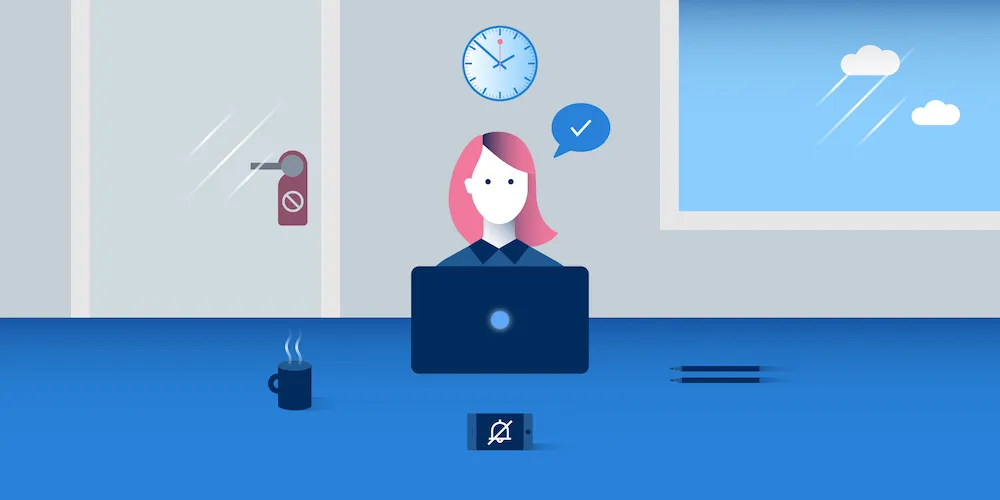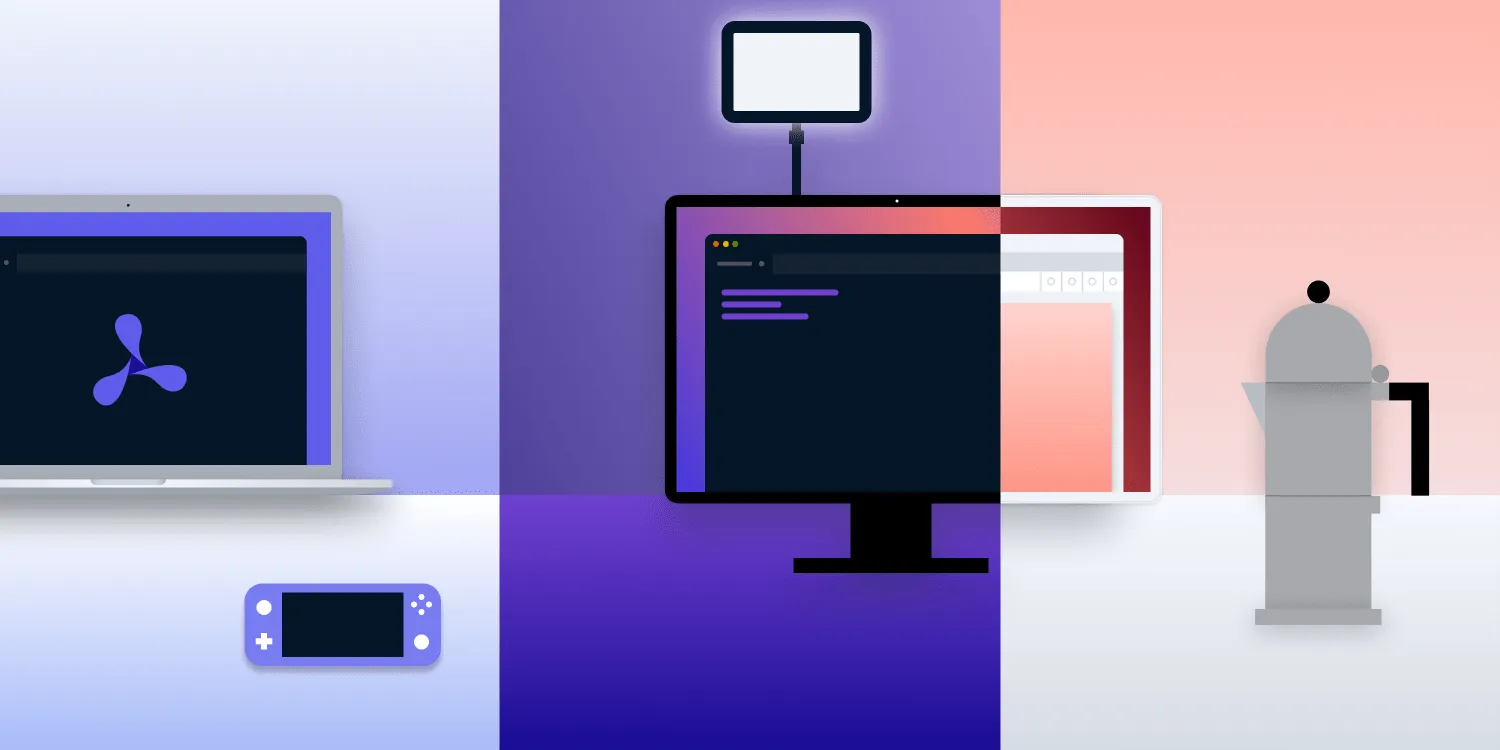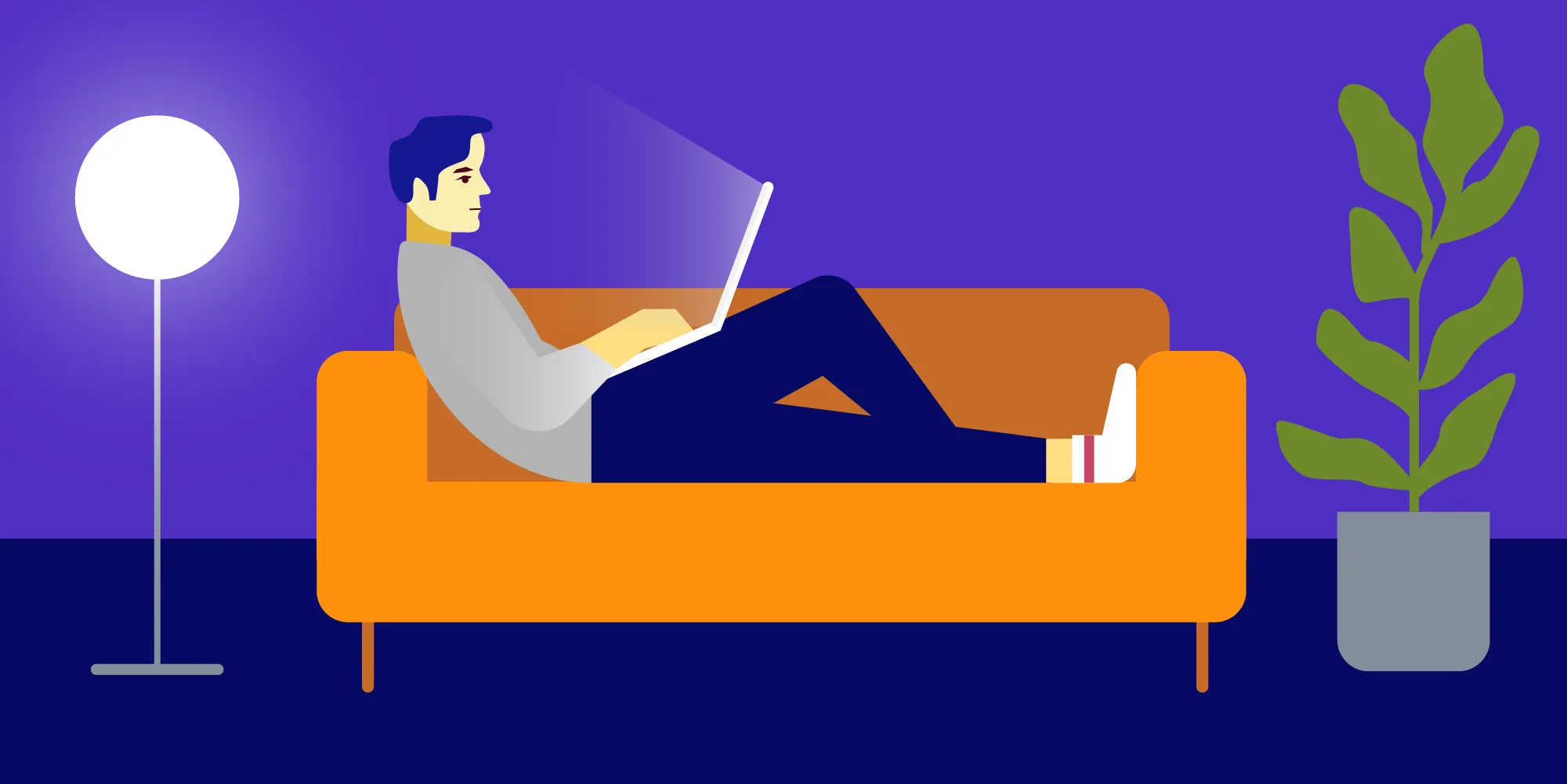Eight Hours: Work
Table of contents

Sitting, staring at a computer right after lunch. Just staring. Nothing else. We’ve all done it, whether it be in an office-based environment with set hours, or when working remotely with an approaching deadline and feeling we have to be at the computer 24/7 until our work is finished. However, it’s not beneficial for you — or the company you work for — if you’re in front of a computer and not being productive. I want to break this mold and introduce the theory of working when (and how) you work best and not working to satisfy some outdated concept of working hours. In this article, I will discuss how we can produce more meaningful work in a way that is beneficial to our well-being and more efficient for our companies.
Mindful Work
Mindful work is the practice of sitting down (or standing up) with a specific goal in mind and performing purposeful work to move toward or achieve this goal. This time should be an uninterrupted, distraction-free time period in which you perform planned tasks that were established before the allotted time began.
When performing work that requires a large amount of brain power and attention, it’s important to be in the right mindset and have a block of uninterrupted time that allows you to work with a clear mind. This is when you are more likely to find a flow(opens in a new tab) state, a theory that has been vastly studied and written about by many people, including Cal Newport in his book Deep Work(opens in a new tab).
In the book, Newport introduces anecdotes of subjects who attempted to cleanse their brains prior to concentrating for large blocks of time in order to be able to concentrate deeply and work for extended periods. For example, the psychoanalyst Carl Jung would leave his clinical practice in Zurich and venture out into the woods, where he would enter a room in the morning and stay there to write. Then he would spend the afternoons walking and meditating.
Ensuring your brain is well cleansed before your next block of work is very important, and this idea is discussed further in Eight Hours: Recreation. But for now, we’re going to focus on the implementation of your work day.
Distractions
Technology is one of the most harmful distractions to long uninterrupted work. It has become acceptable to innocently browse Facebook, scroll through a Twitter feed, or get lost in a Reddit thread while working without considering what it’s doing to our thought processes. There are many sources citing the reduction of the ability to concentrate with heavy use of social media(opens in a new tab). This is worrying, but many studies focus on the bigger picture as opposed to the immediate effect of what happens when you take your brain away from a task that’s in process. The littlest break in our work to look at our notifications interrupts the flow state, and it takes a person, on average, around 23 minutes to get back into(opens in a new tab) what they were doing.
Other distractions can be as simple as repetitive noises, objects moving in your field of vision, or even the temperature in which you work. These are all environmental factors that can be analyzed to ascertain whether something needs to be fixed before entering any mindful work. The thing is, anything that piques your interest momentarily is a distraction.
Task Elimination
Having lots of things on your mind can lead to distraction. We’ve all felt it: When sitting down trying to get work done, a notification in the brain keeps popping up telling us the car insurance needs to be paid. Or it reminds us that at 3pm we have to go and pick up the kids. What to buy our partner for their birthday? These are distractions, and we have to minimize them.
To eliminate these distractions, we can ask a few questions.
- Can you perform it now? - If you answer yes, then just do it.
- Can the blocker be acted upon now? - If you answer yes, then just do it.
- Are you thinking about information related to the task? - If you answer yes, then write it down and do not omit any details. - If you answer no, then there’s no problem.
Most tasks can be taken care of quickly simply by completing them. For example, that dirty pile of dishes you are leaving — if it’s bothering you and it’s on your mind, do it. It’ll take five minutes and it’ll free your brain to be able to work in a better state.
However, if the task cannot be completed in the moment, it’s important to work out a way of quieting that distraction. Consider writing it down with all the details you’re thinking about. For example, if you start thinking about what to eat during the week, it’s impractical to stop work and cook all the meals for the rest of your week. But you can write down a small meal plans that lists each meal and possible ingredients you will have to buy from the shop. Doing this allows you to offload your thoughts and free up your mind to work.
Workspace
Your workspace is important — this includes both your digital and your physical desktop. Having a browser window open with latest news is not going to create a good environment for mindful work. There is lots of software out there to help if you do not have the restraint to limit your social media addiction(opens in a new tab) (do not blame yourself for this; getting you addicted to social media is what these programs and apps aim to do). Use “Do not disturb” modes on your phone, laptop, and anything in your workspace to ensure pesky notifications don’t distract your flow. In the physical domain, having an open book next to you invites you to read just a few lines instead of thinking about the task at hand. Before you start working, make sure that book or any other distracting material is not present on your desk. Keep things as clutter-free as possible to ensure you won’t be tempted.
Notifications can also be enough to take focus away from a task and cause enough of a distraction to interrupt flow. As such, it’s easy to argue in favor of muting notifications for a set amount of time. Some people will stress that it is drastically important to be available throughout their entire working day, but 95 percent of the time, the truth is that the interrupting notification is a question that can wait for an hour or two, or even the whole day. I would at least suggest muting your notifications for an hour while completing mindful work. Or an even better option, if you can adjust to it, is to batch check your notifications and emails during a single task that’s completed at certain points during the day. Then, once you’ve spent an allotted amount of time with this task, you can stop thinking about it and move on to work.
Lastly, find a workspace where environmental distractions are minimal. This can extend as far as some elaborate attempt to recreate nature(opens in a new tab) at the end of your garden, or be as minimal as placing only your laptop on a desk with nothing else in sight. I would also like to stress that this means open offices and coffee shops are not always an optimal place to complete your work. I believe they have their place in a working life and they help with accountability (people can see your screen and know you are looking at Facebook or online shopping and not working), but it also means distractions come often and are not ideal for mindful work. Having the option to choose is always a benefit. If you work in an office environment, talk to your boss and ask if there is a possibility of creating a mindful working area, such as a mandatory quiet space, that anybody can use. Track your progress while using this area and use it as proof of why you need this area or even why you should not be forced to work in an open office at all times.
When to Work
The timing of when to work is also important. You have to balance when you are most productive versus when you receive the least distractions. To give yourself every chance to succeed with some uninterrupted time, it’s a great idea to block out a time of day when it is unlikely you will receive any distractions. A good option is in the very early morning (5am-8am), as most people will not have started their day yet, and the likelihood of any manmade interruptions cropping up is minimal. Use this time to focus on your most pressing and toughest task of the day. This will hopefully set you up for a win early in the day, which can be encouraging as you continue through the rest of your day. But if this is not possible, just ensure that you find a period during the day where you are able to concentrate with minimal distractions.
If you are attempting to work and your brain is not cooperating, stop. Ask yourself why you are not able to complete a task, and do not be critical of yourself for not being able to focus for long periods of time. If you are unable to continue, take a break, complete some life tasks, or partake in some meditation for 10 minutes. Reset yourself and attempt to schedule some mindful work at a later period of time.
Conclusion
Here I have covered some tips on how to be more efficient while working. All these tips have the underlying theme of promoting mindful work. I would invite you explore this advice and iterate on these ideas to formulate a solution that works for you, questioning each action you take during your work day and ensuring it aligns with the mindful work philosophy.
Interested in how other parts of your life can affect your work? Check out the rest of the series.







